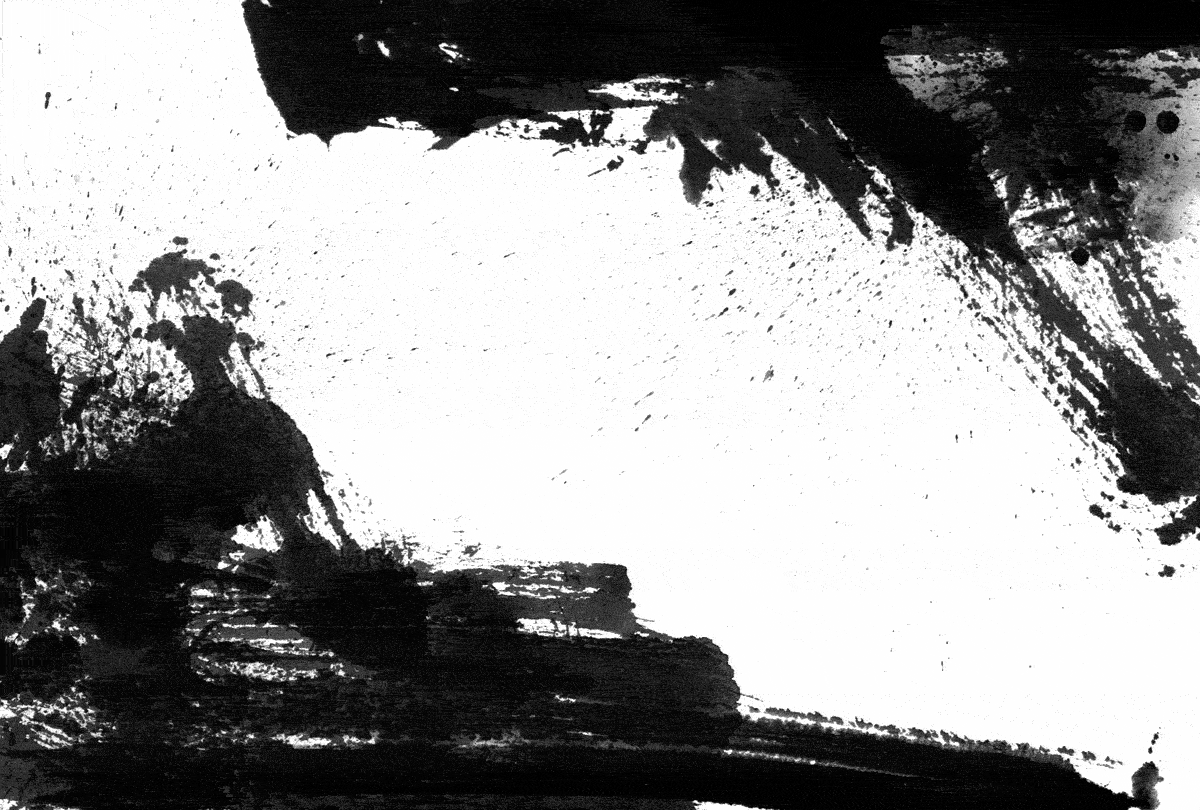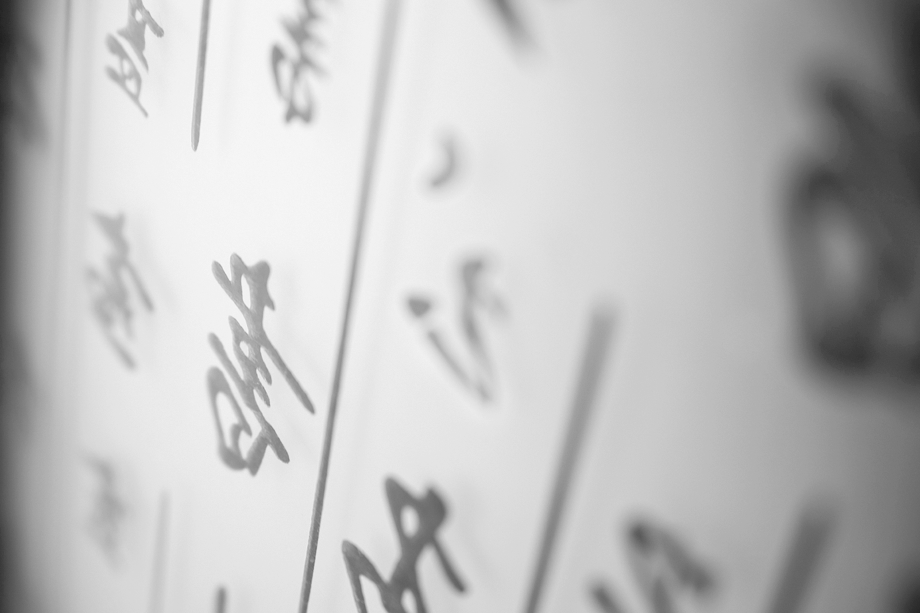Can Xue
Chronology
1953--DENG Xiaohua (pen name: Can Xue) was born in Changsha City, Hunan Province. Both parents worked at the New Hunan Daily News, and her father was the director. Can Xue had three older brothers, two older sisters, and two younger brothers.
1954--Brother, DENG Qimang was born.
1955--Brother, DENG Bamao was born.
1957--Parents were condemned as Ultra-Rightist.
1958--Father was sentenced to “Re-Education through Labor,” and mother was sent to the countryside of the Mt. Heng area in Hunan for labor as well. The family moved into the dormitory of Hunan Teachers College in the suburb of Changsha City where her father was relocated.
1959--The Great Chinese Famine. The family had nothing, and the grandmother was also deprived of her food ration. The whole family struggled to survive. Can Xue and her two younger brothers all contracted consumption.
1960--The famine continued. Grandmother died of starvation. Can Xue started elementary school.
1962--Mother was released and returned to work at the New Hunan Daily News. The whole family moved into the dormitory of the newspaper agency. Can Xue was transferred to Sangongli elementary school, located in Changsha City.
1963--Can Xue was transferred to the elementary school established for children of the employees of New Hunan Daily News.
1964--Older brother, DENG Xiaomang, graduated from junior high school. As an educated youth, he was sent to the countryside to experience reeducation.
1965--Can Xue was transferred to Legu Lane elementary school.
1966--The start of the Cultural Revolution. Can Xue graduated from elementary school, and her younger brother DENG Qimang drowned while swimming.
1967–69--Father was sent to jail by the Revolutionary Committee of Hunan Teachers College. Mother was sent to “May Seventh Cadre School” to be reeducated through labor. Except for the oldest sister, the rest of the family was exiled to the countryside. Can Xue moved back to the dormitory of Hunan Teachers College in order to care for her father, who was allowed occasional visits. Red Guards frequently paraded her father on the streets and subjected him to fierce criticism and public denunciation. During this time, Can Xue lost her chance to continue higher education, and she read a lot of foreign literature at home. When her father was home, he would teach her Marxist philosophy and Western history.
1970--Can Xue received a referral from her oldest sister, DENG Meihua, to work in the Yinpenling Lane Cooperative Medical Station in Changsha suburb as a “barefoot doctor.” She collected herbal medicine on the mountainside, performed acupuncture, gave shots, and treated minor ailments.
1971--Transferred from the clinic to a mechanical factory. Worked there as a miller and assembler for seven years.
1977--Met her husband, LU Yong, who was a junior high school classmate of Can Xue’s older brother, DENG Xiaomang. Yong also went to the countryside with Xiaomang as an educated youth and came back to Changsha City with Xiaomang. Yong acquired carpentry skills in the countryside.
1978--Married to LU Yong. Referred by her oldest sister, Can Xue went to work in an elementary school as a substitute teacher.
1979--Parents were “rehabilitated.” Can Xue’s son, LU Lanyuan, was born. Can Xue began to restudy the literature of LU Xun and XIAO Hong and was exposed to Western modernist literature.
1981--Father was appointed as deputy secretary-general for the Committee of the People’s Political Consultative Conference of Hunan Province. With her father, Can Xue and her husband moved their family to the dormitory of her father’s workplace. Can Xue was a temporary English teacher at the Changsha City 14th High School for a year.
1982--Learned how to sew and tailor with her husband and opened up a tailor shop after three months.
1983--Began to work on her novella Yellow Mud Street.
1985--Published the short story “Soap Bubbles in the Dirty Water” in New Creation, a Changsha City literary journal, and “A Hut on the Mountain” in People’s Literature.
1986--Published novella Old Floating Cloud and an abridged version of Yellow Mud Street in the journal China.
1987--Can Xue published her first book, Yellow Mud Street, a collection of her novellas, with Yuanshen Publishing House in Taiwan, and a novella, Apple Tree in the Corridor, in the journal Bell Mountain.
1988--Published the novel Break through Performance (the original title of Five Spice Street) in a literary journal, Xiaoshuo Jie. This novel was discussed in a conference organized by Shanghai Literature Publishing House and aroused controversy. Can Xue gave a talk at the conference, titled “The Beautiful Moment of Masculine Energy and Literary Criticism.”
1989--Japanese Kawade Shobo Shinsha Publishing House published Old Floating Cloud, a collection of her fiction in Japan. Hino Keizo and Kondo Naoko wrote the commentary. Northwestern University Press published a translation of Dialogues in Paradise.
1990--Kawade Shobo Shinsha Publishing House invited Can Xue to visit Japan. Published Break through Performance in Hong Kong.
1991--Northwestern University Press published a translation of Old Floating Cloud: Two Novellas. French Gallimard Publishing House published Dialogues in Paradise.
1992--The International Writing Program of the University of Iowa invited Can Xue to visit the United States.
1993--Guizhou People’s Publishing House published The Riddle of Can Xue, a book about the sources of Can Xue’s literary inspiration.
1994--Hunan Literature Publishing House published Ideological Report, a collection of Can Xue’s novellas. Can Xue’s father passed away.
1996--Novella The New Life was released.
1997--Began to write a book-length commentary on Franz Kafka.
1998--Hunan Literature Publishing House published the four-volume Anthology of Can Xue. Can Xue’s older brother, DENG Xiaomang, a philosophy professor at Wu Han University, wrote the afterword for the book.
1999--Shanghai Literature Publishing House published The Castle of the Soul, a commentary on Franz Kafka.
2000--Published novellas Helin and The Net of Dark Schemes. People’s Literature Publishing House published Decoding Jorge Luis Borges, a commentary on Borges.
2001--Attended the Conference of Chinese and Japanese Women Writers in Beijing. Presented an article, “Spiritual Layers,” at the conference. Moved to Beijing because of the unpleasant humid weather of the south. Purchased an apartment in Haidian District.
2003--Wrote The Lonely Walker in Inferno, a book-length commentary on Shakespeare and Goethe.
2004--Published Drilling for Eternality, a book-length commentary on Dante Alighieri. Can Xue attended Paris International Book Fair. Robert Coover came to Beijing and met with Can Xue. Moved to Jinbang Garden in Xisanqi area.
2005--Flower Town Publishing House published the novel The Last Lover. Japanese Heibon Publishing House published The Castle of the Soul in Japan.
2006--Published novella Dark Night.
2007--Published a collection of her commentaries and interviews, The Outlook on Literature of Can Xue. The book harshly criticizes the circle of Chinese literature.
2008--Shanghai Literature Publishing House published novel Borderland and autobiographical essays Movement towards Light. A collection of novellas and short stories, Dark Night, was published in the Complete Works of World Literature, vol. 6, in Japan.
2009--Yale University Press published a translation of Five Spice Street. The Yale Whitney Humanities Center and Yale University Press invited Can Xue to visit the United States. Shanghai Literature Publishing House published Splendid Fission, a book-length commentary on Italo Calvino.
Note: In total, Can Xue has published 3 novels, 50 novellas, 120 short stories, and 6 book-length commentaries.




